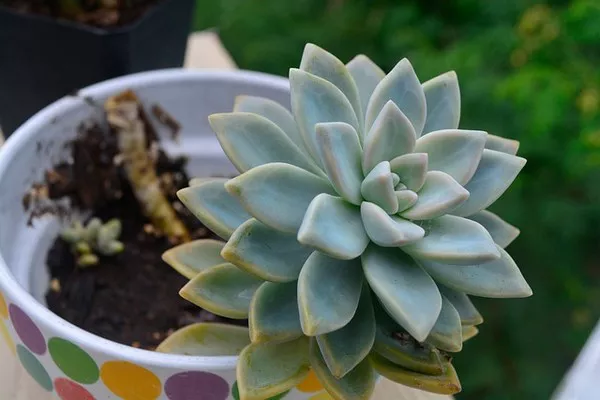Succulents have surged in popularity in recent years, adorning countless homes and gardens with their striking beauty and low maintenance requirements. While these resilient plants are renowned for their ability to thrive in arid conditions, they still require careful attention to ensure optimal health, particularly during the summer months when temperatures soar and moisture levels fluctuate. One of the most common questions among succulent enthusiasts is how often they should water their plants during this time. In this comprehensive guide, we will delve into the factors that influence succulent watering needs in summer and provide practical tips for maintaining thriving succulent gardens.
Understanding Succulent Physiology and Adaptations
Before diving into watering practices, it’s crucial to understand the unique physiology and adaptations of succulents. Succulents are a diverse group of plants characterized by their ability to store water in specialized structures, such as leaves, stems, or roots. This adaptation allows them to survive in environments with limited water availability, such as deserts and arid regions.
The leaves of succulents are typically thick and fleshy, with a waxy coating that helps reduce water loss through evaporation. Additionally, many succulents have shallow root systems that can quickly absorb water from the soil when available. These adaptations make succulents well-suited to withstand periods of drought and thrive in dry conditions.
Factors Influencing Watering Frequency
While succulents are drought-tolerant plants, they still require regular watering, especially during periods of active growth such as the summer months. However, the frequency of watering can vary depending on several factors, including:
1. Climate and Temperature: The climate in your region plays a significant role in determining how often you should water your succulents. In hot, dry climates, succulents may require more frequent watering to prevent dehydration. Conversely, in cooler or more humid climates, watering frequency may be lower.
2. Sun Exposure: The amount of sunlight your succulents receive can impact their water needs. Succulents that are exposed to intense sunlight for extended periods may transpire more rapidly and require more frequent watering to replenish lost moisture.
3. Soil Type and Drainage: Succulents thrive in well-draining soil that allows excess water to escape quickly. Soil that retains too much moisture can lead to root rot and other issues. Sandy or gritty soil mixes are ideal for succulents, as they provide excellent drainage and prevent waterlogging.
4. Plant Size and Growth Stage: The size and growth stage of your succulents also influence their water requirements. Larger plants with more extensive root systems may need to be watered less frequently than smaller or newly planted succulents.
5. Container Type: The type of container you use can impact how quickly the soil dries out. Terra cotta pots, for example, allow moisture to evaporate more readily than plastic or glazed ceramic pots.
Guidelines for Watering Succulents in Summer
Now that we’ve explored the factors that influence succulent watering needs, let’s discuss some general guidelines for watering succulents during the summer months:
1. Monitor Soil Moisture: Rather than adhering to a strict watering schedule, it’s best to monitor the moisture levels of the soil. Stick your finger into the soil near the base of the plant. If the soil feels dry several inches below the surface, it’s time to water. If it still feels moist, hold off on watering for a few more days.
2. Water Thoroughly but Infrequently: When you do water your succulents, it’s essential to water them thoroughly to ensure that the entire root ball receives moisture. Water the soil until it is evenly moist but not waterlogged. Allow any excess water to drain away freely.
3. Avoid Overwatering: One of the most common mistakes succulent owners make is overwatering. Succulents are highly susceptible to root rot if they sit in soggy soil for extended periods. To prevent overwatering, always err on the side of underwatering rather than overwatering.
4. Water in the Morning: Watering your succulents in the morning allows any excess moisture on the leaves to evaporate during the day, reducing the risk of fungal diseases. Avoid watering in the evening, as wet foliage overnight can promote fungal growth.
5. Adjust Watering Frequency as Needed: Be prepared to adjust your watering frequency based on environmental conditions and the specific needs of your succulents. During heatwaves or prolonged periods of drought, you may need to water more frequently to prevent dehydration.
6. Consider Microclimates: Different areas of your garden or home may have microclimates with varying temperature and humidity levels. Take these factors into account when determining how often to water your succulents.
7. Mulch to Retain Moisture: Applying a layer of mulch around your succulents can help retain soil moisture and reduce the frequency of watering. Organic mulches such as wood chips or straw can also improve soil structure and fertility over time.
8. Adjust Watering for Dormant Periods: Many succulents go through a period of dormancy during the winter months when they require less water. Reduce watering frequency during this time to prevent root rot and other issues.
Conclusion
Watering succulents in summer requires a delicate balance to ensure that these resilient plants receive adequate moisture without succumbing to overwatering or root rot. By understanding the factors that influence succulent watering needs and following practical guidelines, you can help your succulents thrive during the hottest months of the year. Remember to monitor soil moisture, water thoroughly but infrequently, and adjust your watering frequency based on environmental conditions and plant health. With proper care, your succulents will continue to adorn your home and garden with their beauty for years to come.


